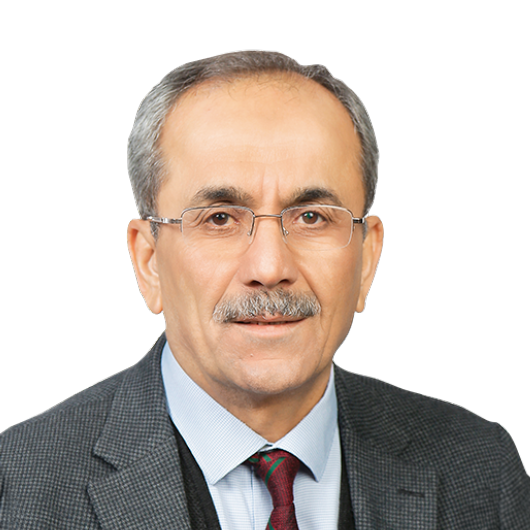
- 29.08.2025, Friday
- 05:45
Palestine: Revolt, Rebellion, and the Muslim World's Identification with the Uprising
18:0630/04/2025, Wednesday
Next article
Selçuk Türkyılmaz
Selçuk Türkyılmaz has been a frequent contributor to Yeni Şafak for years, penning columns on a variety of topics for the daily

Although Israel achieved many of its short- and medium-term goals from the 1920s onward—when the Zionist project first took on concrete form—it has ultimately fallen short of its long-term objectives, despite backing from global superpowers. This might sound surprising to many, but it's important to remember that the Zionist movement’s ambitions in the 1920s extended far beyond the borders that Israel has reached today. Unfortunately, thanks in part to the work of well-known historians in Türkiye,
Although Israel achieved many of its short- and medium-term goals from the 1920s onward—when the Zionist project first took on concrete form—it has ultimately fallen short of its long-term objectives, despite backing from global superpowers. This might sound surprising to many, but it's important to remember that the Zionist movement’s ambitions in the 1920s extended far beyond the borders that Israel has reached today. Unfortunately, thanks in part to the work of well-known historians in Türkiye, the Palestine issue has often been reduced to misleading narratives like "they sold their land," which severely limits our ability to understand a century-long resistance against the world’s most powerful forces in such a small corner of the globe.
Israel was never just about Israel—it was openly supported by Britain, Germany, France, and the United States despite committing numerous war crimes. This support went far beyond passive endorsement; Israel was built as an Anglo-Saxon colony in the Eastern Mediterranean. And yet, the Palestinian people have managed to resist in this small strip of land for over a hundred years. Israel's failures must be evaluated within this broader historical and geopolitical context.
Starting especially in the 1970s, Palestinian resistance groups developed far more effective methods of struggle. However, the dominant narrative at the time tended to frame events in terms of Israel’s "irresistible power and progress," offering a very narrow view of the conflict. Despite ups and downs, the history of Palestinian resistance has shown an impressive continuity across generations—a continuity that stems from the transformation of the Palestinian cause into a powerful idea. While some Palestinian factions weakened or disappeared over time, the cause itself has endured as a living idea. That in itself is a significant and often overlooked achievement.
The dominant Eurocentric paradigm presents the Palestinian issue through a static lens, and unfortunately, many prevailing perspectives in Türkiye align with this limited framework. As a result, there is little in-depth discussion within Türkiye on how Palestinian resistance groups have actually shifted the dynamics on the ground. The issue is still often reduced to a narrow form of self-criticism: “We should look for the fault in ourselves.” But the conflict can’t be boiled down to the Arab-Israeli wars alone—it is far more complex than that.
In the 2002 book The New Intifada, Edward Said wrote an essay titled “Palestinians Under Siege,” in which he described the struggle as having taken on three new dimensions: a revolt against colonialism, a rebellion against the post–Cold War world order, and a movement increasingly seen by Muslims around the world as part of a broader global picture. Said’s observations were rooted in the dynamic nature of the Palestinian struggle. He saw how the idea of Palestine connected generations and movements, a reality that cannot be properly understood through outdated, stagnant frameworks like those shaped centuries ago.
In the 1990s, leading voices of the new Orientalism cast Islam and Muslims as part of a “terrorist” category. These narratives, shaped by imperial expansionism, placed Islam itself in the crosshairs. Much of the dominant discourse around Islamism today was actually formed during that period. Without diving into a critique of those narratives now, it’s worth drawing attention to the shift we see today. Edward Said’s framing no longer seems unrealistic. Yes, Palestinians remain under siege—but the elements he identified—rebellion, resistance, and identification by the global Muslim community—are forcing change across the world. At the heart of this powerful movement lies something that the new Orientalists failed to understand: Islam.
We have witnessed with our own eyes that Islam remains a powerful source of strength. It has clearly allowed Palestinian resistance groups to renew and adapt under the harshest conditions. It’s crucial to recognize that this reflects a multilayered reality. Vague generalizations like “the Islamic world” are inadequate for understanding the dynamic nature of these groups. What we must acknowledge is that Islam, as a religion, has enabled the emergence of new identities from within complex social and political structures. The global resonance of the Palestinian cause today is no ordinary phenomenon. And we should have no doubt that Muslims around the world now see the Palestinian struggle as part of a much larger story.
#Palestine
#Israel
#Gaza
Comments
Hello, the comments you share on our site are a valuable resource for other users. Please respect other users and different opinions. Do not use rude, offensive, derogatory, or discriminatory language.
No comments yet
The floor is all yours.

Click here to receive the most important news of the day by email. Subscribe here.
By subscribing, you agree to receive electronic communications from Albayrak Media Group websites and accept the Terms of Use and Privacy Policy.
LEGAL NOTICE
The BIST name and logo are protected under the "Protected Trademark Certificate" and cannot be used, quoted, or altered without permission.All rights to the information disclosed under the BIST name are entirely owned by BIST and cannot be republished. Market data is provided by iDealdata Financial Technologies Inc. BIST stock data is delayed by 15 minutes.
Cookies are used limited to the purposes of the Law on the Protection of Personal Data No. 6698 and in accordance with the legislation. For detailed information, you can review our cookie policy.






